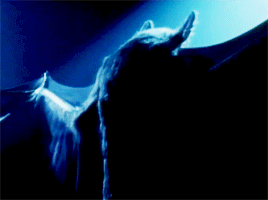Are you as good a listener as a bat?
Do you possess all the incredible powers of a bat?
Do you glide silently through the city at night, using your radar hearing to track down criminal scum going about their nefarious business?
Do you then drop gracefully from the shadows to deliver justice with the stealth and speed of a great airborne predator?

No?
Well, even if you don’t have a bat’s crime-fighting capabilities, you might just have their listening skills. Which isn’t as exciting, but is arguably more useful.
In a recent study, researchers from the Institute of Cell Biology and Neuroscience at Goethe University Frankfurt sought to understand how Seba’s short-tailed bats prioritise different sounds. While using echolocation to navigate, bats must also keep an ear out for communication from other bats, infant isolation cries and any hint of nearby predators. Evidently, bats are superheroes when it comes to listening.
The researchers recorded the brainwaves of anaesthetised bats while they were exposed to alternating sequences of two notes at different pitches, one at the pitch of an echolocation call and the other at the pitch of a communication call. The first sequence played the first note more frequently than the second (e.g. 1-1-1-1-2-1-1-1-2-1-1-1-1-1-1 … ), which was then reversed in the second sequence. In this way, the researchers could see whether it was the pitch or frequency of a sound that determined how it was processed by the bat.
The study found that the rarer note elicited a stronger neuronal reaction than the more commonly repeated note, regardless of its pitch. Essentially, it seems that bats’ brains regulate the strength of the neuronal response to echolocation calls by downplaying them, while amplifying the response to infrequent communication calls.
Professor Manfred Kössl likens this to the “party effect”, where “we filter out the conversations of people in our immediate environment so we can concentrate totally on the person we are speaking with. These mechanisms are similar to those found in bats.”
As someone who finds it almost impossible to concentrate while cornered by a talkative party guest, your Back Page correspondent is withholding excitement until scientists find a way to transfer this skill to humans.
Maybe they could get a radioactive bat to bite someone?

If you hear something batty, bat an email over to felicity@medicalrepublic.com.au


